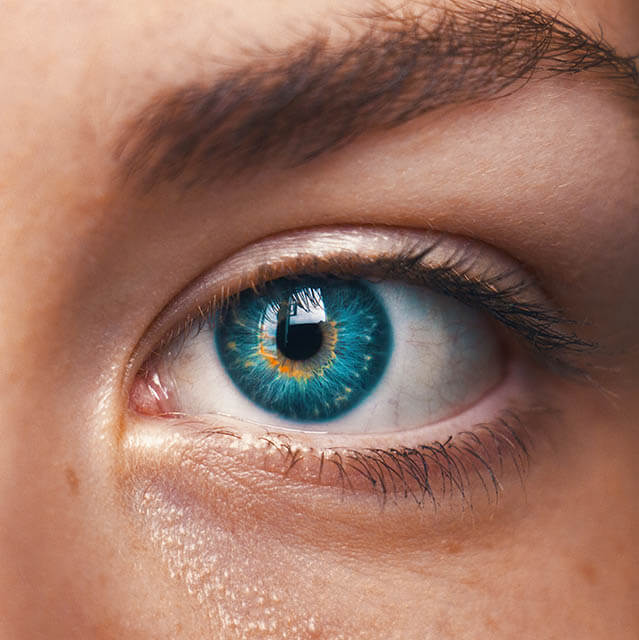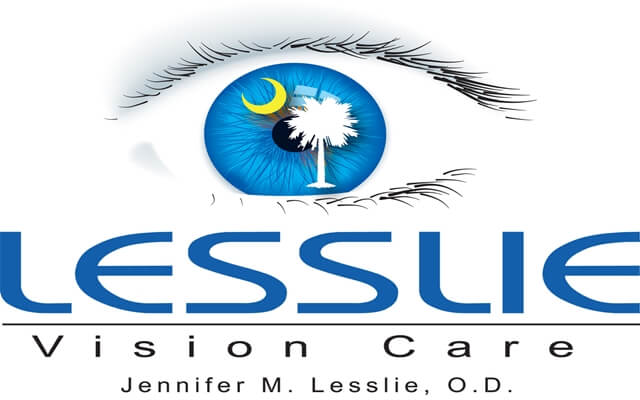Eye Emergency Services in North Charleston
The human eye is delicate and very susceptible to injury.
Did you get a cut or injury to your eye?
At Lesslie Vision care, we offer emergency services that require immediate and urgent eye care.
Whenever an injury occurs, one has a tendency to rush to the emergency room. However, when it comes to an eye injury or a corneal abrasion, the best course of action is to seek help from your local eye doctor. Our North Charleston eye doctors understand the eye more than a typical emergency room. We can properly diagnose and treat the injury with our up to date equipment and technology.
Lesslie Vision Care offers emergency services for patients (existing and new) that require immediate and urgent eye care. Please check our business hours or contact us.
Eye Emergencies
A sudden injury not only causes pain, but can have some pretty serious complications to your health. Certain areas of the human body are more susceptible to injury than others and can cause long-term damage.
They say that the eyes are the window to the soul, but they are also one of the most sensitive and important areas of the body. Any injury to the eye can negatively impact your vision and should be checked as soon as possible.
We asked Dr. Lesslie...
I have been experiencing flashes of light and now I have a big black spot in my right eye. What should I do about this?
Make an appointment with the doctor to have your eyes dilated to check for retinal detachment or posterior vitreal detachment. With a retinal detachment, it is important to be seen by a doctor as soon as possible. The sooner you are in to see a retinal doctor the better the outcome. With Posterior vitreal detachments, time helps the floater to settle down and usually out of direct view so it is not as noticeable. Either way it is important to have a dilated exam to know what the next steps need to be.
Common Eye Injuries
Many eye injuries happen at school, in the office, at home, or while traveling. Sports activities are one of the most common sources of eye injuries. On-site job visits, such as in the construction industry, are another source of frequent eye emergencies.
Dr. Lesslie treats many types of eye emergencies, such as:
- Chemical exposure
- Concussion
- “Floaters” in the vision
- Dislodged contact lenses
- Eye infections
- Eye trauma
- Flashes of light in the vision
- Foreign materials stuck in the eyes
- Lost or broken contact lenses or eyeglasses
- Red or painful eyes
- Scratched eyes
- Sudden loss of vision in one or both eyes
- Uncomfortable, itchy, or irritated eyes
Scleral lenses can provide effective relief, as well. These are custom-designed rigid contact lenses with a large diameter that cover the entire sclera (the white part of the eye) without touching the cornea. Scleral lenses contain a tiny pool of water, providing constant moisture to dry eyes.

Common Causes of Eye Injury

Chemical Exposure and Your Eyes
Many people assume that exposure to chemicals affects only the skin and lungs. However, even mild exposure to chemicals in household cleaning products can damage your vision.
Chemicals like sodium hydroxide can be found in oven and drain cleaners. Air fresheners and leather cleaners may contain formaldehyde, which in high amounts, has been linked to certain types of cancer. Exposure to these substances can cause itching, burning, redness, or soreness in the eyes.
The #1 way to lower your risk is to wash your hands thoroughly after handling cleaning products. Avoid touching or rubbing your eyes until your hands are washed and clear of any lingering chemical substances. If the pain persists, contact your eye doctor.
Foreign Materials Stuck in the Eyes
Getting something stuck in your eye can be excruciating. Even a tiny eyelash that falls into the eye can be very painful and immediately cause your eyes to water, itch, burn, or sting.
If a foreign particle gets into your eye, rinse your eye with cold water for 15 minutes. If that doesn’t wash it away, seek medical care immediately.
A sharp piece of debris like a tiny shard of glass or pebble can scratch the cornea, known as a corneal abrasion.
A deep abrasion can lead to eye infection or a corneal ulcer, so if you experience a foreign substance in your eye without successfully flushing it out on your own, contact your eye doctor as soon as possible.
Concussions
A concussion is an injury to the brain caused by a physical trauma, known as a Traumatic Brain Injury, or TBI. This is typically caused by a sudden blow or bump to the head, which makes the brain move around inside the head. A concussion can cause headaches, dizziness, nausea, or sudden light sensitivity.
Concussions can lead to vision problems, including blurry or double vision, eyestrain, problems with eye coordination, and reading difficulties.
If you or a loved one has experienced a concussion, contact our office immediately. Dr. Lesslie will perform a comprehensive eye exam to check your visual acuity and overall eye health to ensure that the injury hasn’t negatively impacted your everyday activities.
Eye Infections
A highly common eye emergency, eye infections can be serious and contagious, depending on the type of infection you have. One of the most prevalent eye infections is conjunctivitis, also known as “pink eye.” This occurs when the conjunctiva, which is a thin membrane that lines the eyelids and sclera (white part of the eye), become inflamed or swollen. The sclera usually turns dark pink or red, and the eyes become watery and include a mucus discharge.
Pink eye is contagious and spreads quickly, especially around children in daycare and schools. Fortunately, we can treat eye infections with antibiotic eye drops or ointment. These usually eradicate the infection quickly. In more severe cases, Dr. Lesslie may recommend an alternative course of action.


Itchy or Irritated Eyes
Perhaps one of the most frequently reported symptoms, itchiness or irritation in the eyes can be a sign of various eye diseases or conditions.
Itchy eyes are often a symptom of Dry Eye Disease, a condition in which the eyes do not produce enough tears to keep the eyes lubricated.Itchy eyes can signify a corneal scratch, also known as a corneal abrasion.
This happens when something scratches the cornea of your eye, like a fingertip or a tiny grain of sand. Even rubbing your eyes excessively can cause a corneal abrasion.
Dislodged Contact Lenses
For contact lens wearers, getting lenses stuck in the eye can be a painful experience. This happens when the lens folds itself or moves underneath the eyelid.
Simply massage your eye and the lens will usually move or fall out on its own. If it feels dry, administer some re-wetting drops or artificial tears to moisturize the area.A dislodged lens may also be a sign of poor fit. In these cases, we can simply examine your eye and outfit you for better fitting contact lenses.
Should you be unsuccessful at dislodging a stuck contact lens by yourself, that’s where we come in. Visit Lesslie Vision Care and we’ll remove it and get you back to comfortable lens wear.
